Facial Feminization Surgery (FFS) in Singapore
Search and Compare the Best Clinics and Doctors at the Lowest Prices for Facial Feminization Surgery (FFS) in Singapore

Find the best clinics for Facial Feminization Surgery (FFS) in Singapore
No pricing info available
Thailand offers the best prices Worldwide
Price: $ 1,945
From 1 verified reviews
Su Anh, 17 November 2019
I had great massage here after my surgery, very recomend this
- Home
- Singapore
Compare Before & After Photos of _procedure_photos.phpFacial Feminization Surgery (FFS)
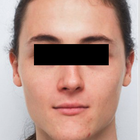
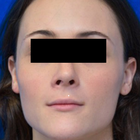
Front view
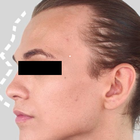
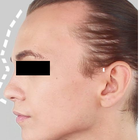
Half-side view
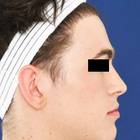
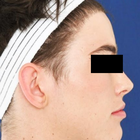
Full-side view
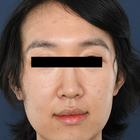
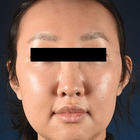
Front view
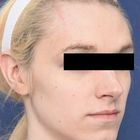
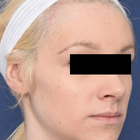
Half-side view
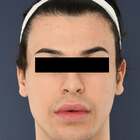
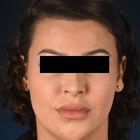
Front view
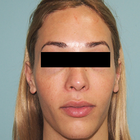
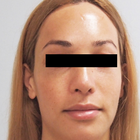
Front view
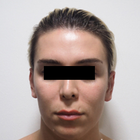

Front view
WHY US?
At Medijump, we're making medical easy. You can search, compare, discuss, and book your medical all in one place. We open the door to the best medical providers worldwide, saving you time and energy along the way, and it's all for FREE, no hidden fees, and no price markups guaranteed. So what are you waiting for?

Free

Best Price

Widest Selection

Risk-Free
What you need to know about Facial Feminization Surgery (FFS) in Singapore
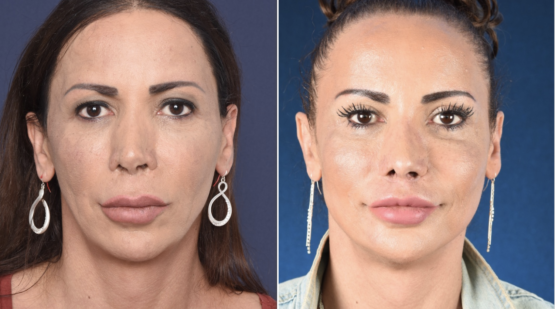
Facial Feminization Surgery, often abbreviated as FFS, is an extensive surgical process designed to modify masculine facial characteristics into a more feminine appearance. The procedure comprises several surgeries including rhinoplasty, forehead recontouring, and jaw and chin modifications. FFS is frequently sought after by transgender women desiring to more authentically express their gender identity. Any potential patient is advised to consult with a licensed surgeon to personalize the surgical plan according to their specific needs and aspirations.
Facial Feminization Surgery (FFS) usually necessitates an exhaustive pre-procedure assessment. This involves a thorough review of the patient's medical history, a complete physical examination, a psychological evaluation, and possibly facial x-rays. The surgeon will also discuss the aesthetic objectives, benefits, risks, and potential complications of the surgery with the patient. A collaborative decision-making approach is used to ensure patient safety and contentment following the procedure.
In this before and after example, the patient underwent Rhinoplasty, Chin recontouring, Jaw reduction, Lip lift, and eyelid surgery (blepharoplasty). The photo is taken 4 months post-op.
What is the cost of Facial Feminization Surgery (FFS) in Singapore?
Various elements such as the surgical complexity, hospital stays, anesthesiologist costs, and surgeon's fees influence Facial Feminization Surgery (FFS) pricing in Singapore. On average, possible charges vary from $20,000 up to $50,000. A detailed price breakdown from your healthcare provider will provide an exact view of the cost details.
The value of the procedure does not necessarily need to compromise the quality and standards of the surgery. Gain clarity about what components are inclusive and exclusive in the overall cost to understand thoroughly what your payment encompasses. Insurance firms usually do not cover aesthetic procedures, hence comprehensive knowledge and prudent financial preparation will streamline the procedure and make the Facial Feminization Surgery (FFS) a valid investment in enhancing your self-perception and assurance.
What does a Facial Feminization Surgery (FFS) Procedure Involve?
Facial Feminization Surgery (FFS) entails a range of tailored techniques aimed at personal needs with a focus on feminizing and gently modifying the facial structure. These techniques may encompass forehead reshaping, adjustments to the jaw and chin, rhinoplasty, facelifts, and other unique enhancements. The rising trend in health and well-being-oriented medical research is mirrored in personalized surgery schemes, ensuring the outcomes are attuned to individuals.
Normally, a care center will execute an in-depth consultation process to comprehend your aesthetic aspirations and draft a surgical blueprint. This evaluation is essential in harnessing the maximum advantages from the Facial Feminization Surgery (FFS). Ensuring the health and safety of the patient, a pre-operative assessment, encompassing a review of physical health and mental well-being, is a crucial measure.
How Long Should I Stay in Singapore for a Facial Feminization Surgery (FFS) Procedure?
During the planning phase for Facial Feminization Surgery (FFS), considering the necessary time for the operation and subsequent recovery is vital, in order to ensure a seamless return to standard duties. The length of your Singapore visit is heavily influenced by the surgery’s intricacy, your personal health condition, and your recovery speed. Generally, a timeframe of one to two weeks is advised before getting back to everyday activities.
However, the precise timeline can differ considerably, with follow-up meetings commonly arranged during your stay. These are paramount for evaluating your progress and identifying any possible surgical complications. This window also presents a chance for practising respiratory exercises and other preventive health methods to expedite a seamless recovery. Adherence to all the instructions given by your surgeon during this term is critical, as this significantly influences the success rate of the Facial Feminization Surgery (FFS).
What's the Recovery Time for Facial Feminization Surgery (FFS) Procedures in Singapore?
Recovery from Facial Feminization Surgery (FFS) can differ among individuals, largely depending on the procedure's scope and the patient's overall health. Usually, patients require approximately six weeks of recuperation before they can engage in strenuous activities. During this time, individuals may experience swelling, bruising, and discomfort related to the surgery, but these symptoms typically diminish over time.
Getting plenty of rest, maintaining adequate hydration, and consuming a balanced diet can aid in accelerating recovery. It's vital to strictly follow the healthcare provider's advice regarding prescribed medicines, care of surgical wounds, and limitations on activities to prevent complications and promote healing. Keep in mind that health and well-being extend beyond the surgical procedure itself, so comprehensive aftercare is essential for successful outcomes.
What sort of Aftercare is Required for Facial Feminization Surgery (FFS) Procedures in Singapore?
Appropriate aftercare is a vital component of successful Facial Feminization Surgery (FFS) and significantly influences the recovery process. It may include prescribed medications, regular medical check-ups, custom-made nutrition plans, and effective weight management. The recovery phase could span several weeks, during which adequate rest is paramount for a seamless recuperation.
Patients are often advised by their surgeons to temporarily abstain from rigorous physical activities and to maintain a healthy lifestyle. The latter should incorporate balanced nutrition, staying hydrated, taking supplements, and ensuring proper sleep and mental health management. It's important to note that adherence to the prescribed aftercare plan and attendance at follow-up visits are key to tracking improvements and promptly addressing any potential complications.
What's the Success Rate of Facial Feminization Surgery (FFS) Procedures in Singapore?
Facial Feminization Surgery (FFS) is recognized as an extremely successful surgery that produces transformative and enduring outcomes. The success rate fluctuates depending on various factors, including the proficiency of the surgeon, the overall health of the patient, and the quality of care after the surgery. A majority of patients report high levels of satisfaction, citing increased self-confidence and an enhanced quality of life.
It's important to understand, however, that despite its high success rate, the procedure isn't without potential risks and complications. Complications like infections, scarring, and dissatisfaction with the aesthetic outcome are potential, though they are rare occurrences. Thorough pre-operative evaluations, skilled surgical hands, and comprehensive post-operative care significantly lessen these risks. Consequently, when selecting the most suitable protocol for your Facial Feminization Surgery (FFS), the guiding factors should be patient safety and satisfaction.
Check out this video for before and after images of FFS patients, you'll be amazed by some of the results made possible by this surgical procedure.
Are there Alternatives to Facial Feminization Surgery (FFS) Procedures in Singapore?
Bear in mind that each person's needs and preferences are distinct, and surgical interventions might not be the most suitable route for everyone. There are other alternatives available for those who might be more inclined towards non-surgical solutions. Aesthetic treatments like injectable fillers, Botox, and others can simulate some effects of the Facial Feminization Surgery (FFS) on a temporary basis. However, cosmetic treatments of this kind typically necessitate ongoing sessions to preserve the sought after result.
Furthermore, some individuals might prefer to engage in psychological or behavioral therapies that encourage self-acceptance and a positive body image. Such therapies address the mental health components of self-image and gender dysphoria, offering a different perspective to surgery. Having open-ended discussions with healthcare providers to explore all the available options prior to making a decision is strongly advised.
What Should You Expect Before and After the Facial Feminization Surgery (FFS)?
Prior to undertaking Facial Feminization Surgery (FFS), patients participate in an in-depth consultation process. During this stage, surgeons evaluate the individual's health status, expectations, and motivations to design a treatment program that best meets their needs. Various health screenings may be conducted to verify the patient's physical suitability for the operation.
Post-procedure, initial weeks may bring about some degree of discomfort, swelling, and bruising, which will progressively decrease. Adequate post-procedure care can significantly improve recovery and the ultimate outcome of your Facial Feminization Surgery (FFS). It's crucial to maintain regular communication with your surgeon and promptly report any unusual symptoms. The goal is to ensure a successful surgical procedure followed by a rapid and smooth recovery, guiding you towards a more self-assured version of yourself.
What is the Preoperative Preparation for Facial Feminization Surgery (FFS) in Singapore?
Preparing for Facial Feminization Surgery (FFS) entails addressing both physical and mental aspects to ensure successful surgery and recuperation. Patients undergo comprehensive evaluations involving various diagnostic tests to determine their overall health and suitability for the surgery. Moreover, patients may need to halt tobacco use, moderate alcohol consumption, and adjust certain medications—especially those affecting blood clotting—as these factors could disrupt both the surgical process and healing.
In addition, therapy sessions may be suggested to assist individuals in managing the psychological implications of such a life-changing procedure. A balanced diet is also pivotal in enhancing the body's healing capacity; adopting a healthy eating regimen, such as the Mediterranean diet, and considering suitable nutritional supplements can optimize preoperative preparation. Emphasizing mental wellbeing is another vital aspect of the journey, and implementing stress management strategies can prove beneficial during this period.
What are the Long-term Implications of Facial Feminization Surgery (FFS) in Singapore?
Facial Feminization Surgery (FFS) is often viewed as a long-term commitment that yields lasting and significant transformations. It significantly enhances self-image and self-confidence, leading to a substantial improvement in life quality. Though the changes induced by the surgery are generally unchanging, sustaining a consistent weight and adopting a healthy lifestyle are vital in preserving the results.
It's important to bear in mind that adjusting psychologically is an integral aspect of such a transformative experience. Individual or group therapies can aid in navigating these changes, fostering deep-seated growth and self-understanding following the Facial Feminization Surgery (FFS). Always remember, the success of a procedure goes beyond the physical alteration—it also involves overall wellbeing, health, and a positive life perspective.
Whilst the information presented here has been accurately sourced and verified by a medical professional for its accuracy, it is still advised to consult with your doctor before pursuing a medical treatment at one of the listed medical providers
No Time?
Tell us what you're looking for and we'll reachout to the top clinics all at once
Enquire Now

Popular Procedures in Singapore
Prices Start From $96

Prices Start From $111

Prices Start From $70

Prices Start From $16

Prices Start From $220

Prices Start From $28

Prices Start From $672

Prices Start From $275

Prices Start From $101

Prices Start From $556

Prices Start From $4,377

Recommended Medical Centers in Singapore for Facial Feminization Surgery (FFS)

- Interpreter services
- Translation service
- Religious facilities
- Medical records transfer
- Medical travel insurance
- Health insurance coordination
- TV in the room
- Safe in the room
- Phone in the room
- Private rooms for patients available

- Interpreter services
- Translation service
- Religious facilities
- Medical records transfer
- Medical travel insurance
- Health insurance coordination
- TV in the room
- Safe in the room
- Phone in the room
- Private rooms for patients available

- Interpreter services
- Translation service
- Religious facilities
- Medical records transfer
- Medical travel insurance
- Health insurance coordination
- TV in the room
- Safe in the room
- Phone in the room
- Private rooms for patients available

- Interpreter services
- Translation service
- Religious facilities
- Medical records transfer
- Medical travel insurance
- Health insurance coordination
- TV in the room
- Safe in the room
- Phone in the room
- Private rooms for patients available

- Interpreter services
- Translation service
- Religious facilities
- Medical records transfer
- Medical travel insurance
- Health insurance coordination
- TV in the room
- Safe in the room
- Phone in the room
- Private rooms for patients available

- Interpreter services
- Translation service
- Religious facilities
- Medical records transfer
- Medical travel insurance
- Health insurance coordination
- TV in the room
- Safe in the room
- Phone in the room
- Private rooms for patients available

- Interpreter services
- Translation service
- Religious facilities
- Medical records transfer
- Medical travel insurance
- Health insurance coordination
- TV in the room
- Safe in the room
- Phone in the room
- Private rooms for patients available

- Interpreter services
- Translation service
- Religious facilities
- Medical records transfer
- Medical travel insurance
- Health insurance coordination
- TV in the room
- Safe in the room
- Phone in the room
- Private rooms for patients available

- Interpreter services
- Translation service
- Religious facilities
- Medical records transfer
- Medical travel insurance
- Health insurance coordination
- TV in the room
- Safe in the room
- Phone in the room
- Private rooms for patients available

- Interpreter services
- Translation service
- Religious facilities
- Medical records transfer
- Medical travel insurance
- Health insurance coordination
- TV in the room
- Safe in the room
- Phone in the room
- Private rooms for patients available
Facial Feminization Surgery (FFS) in and around Singapore
About Singapore
Singapore is a small, yet beautiful island city-state in South East Asia. The country's growth and prosperity in terms of infrastructure and economy are astounding and Singapore is affluent and tax-friendly and its GDP is on par with developed European nations.
Singapore is a global center for education, technology, tourism, trade, logistics, and healthcare. Medical expenses in Singapore are expensive when compared to Thailand and India. Yet, the country attracts medical tourists with its cleanliness, world-class medical infrastructure, and facilities. A C-section will cost anywhere between $6,048 and $11,267 in Singapore. Hip replacements can cost around $8,550-$12,850 and breast lump removal will cost you $5,459-$10,700 including a private room.
The country has 15 JCI accredited hospitals and medical centers, which offer a variety of services from orthopedics, dermatology, dental, cardiology, ophthalmology, and cosmetic procedures to alternative therapies such as acupuncture and Ayurveda. English-speaking medical professionals are extremely skilled and experienced. The hospitals in Singapore have access to cutting edge technologies and it is the best country to treat life-threatening, complex conditions.
It is advisable for medical tourists to have an International Health Insurance Plan to cover surgical costs. Most of the reputed hospitals in Singapore will only admit foreign patients with health insurance.
Medical care in Singapore is not just about getting preventive care and treatments for medical conditions that one may have. Some of the health care centers in Singapore are super luxurious and you can even order your food and shop using wireless tablets provided and make use of the nearby spas. Popular Hospitals and Clinics are the Farrer Park Hospital, Gleneagles Hospital Singapore, Mount Elizabeth Hospital, Parkway East Hospital, and Thomson Medical Centre.
Popular parts of Singapore
Singapore is home to over 5.5 million people and its cultural diversity is displayed in the extensive ethnic cuisine and major festivals. Singapore ranks number ten in the world for skyscrapers.
- Sentosa: Each of Sentosa’s three beaches: Siloso, Palawan, and Tanjong—hold their own unique charms. Palawan beach’s islets and playgrounds are great spaces for families to unwind. Resorts World Sentosa is home to several amazing experiences. Take a movie-themed ride at Universal Studios Singapore, or immerse yourself in aquatic adventures at the S.E.A. Aquarium.
- Marina Bay: If you wish to explore the extravagant side of Singapore, visit the stunning, Marina Bay. The Nightlife is amazing with glittering lights, glitzy rooftop bars, and restaurants. Marina Bay is the central and the busiest district of Singapore.
- Chinatown: You can experience an impressive blend of traditional and modern Singapore in Chinatown. There are ornate Chinese, Buddhist and Hindu temples, museums and plenty of opportunities to soak up the busy streets which are full of old shophouses. It is the perfect location for traditional cuisine and you will be spoilt for choice.
- Orchard: The 2 km long Orchard Road is a shopper’s paradise as you will find large shopping malls and designer’s stores. Singapore’s only UNESCO World Heritage site, the Botanical Garden lies at the corner of Orchard Road.
- Joo Chiat: This neighborhood is more residential and you will find an amazing range of housing options.
- Little India: is the center of the Indian community within Singapore and is filled with multicolored shop-houses that line the streets, and various mosques and temples, and enjoy the aromas that infuse the night air when the demand for food is at its peak.
Weather and Climate in Singapore
Singapore lies close to the equator in the Southern Hemisphere. The island country has a tropical climate. It is hot and humid throughout the year which has led to a steady inflow of tourists all year round.
Singapore receives an annual rainfall of 2430 mm. An average of 167 days receives moderate to heavy rainfall. Two different monsoons: Northeast (December to March) and Southwest monsoon (May to September) accounts for the rainfall. Thunderstorms are quite common during the Southwest monsoon.
The average temperature is 31°C during the day. It is most likely that the temperature can drop to 19°C during the hours of darkness.
Getting around in Singapore
Rated as the world's best airport by Skytrax, Singapore Changi Airport is one of the busiest airports in the World. The airport serves around 100 airlines, flying to 400 cities across 100 countries. You can hire a taxi or use the MRT to reach downtown Singapore.
The transport system is efficient due to the systematic and comprehensive network of roadways. The Land Transport Authority controls private vehicles and minimizes traffic congestion. Some of the common forms of transportation are:
- Mass Rapid Transit (MRT): The MRT has a total of five lines. You can buy a Singapore Tourist Pass or EZ Link card which allows you to use the railways any number of times for two or three days. A single journey costs 0.58 USD and a train arrives every 2-3 minutes during the peak hours.
- Public buses: There are over 300 public buses to serve the locals and tourists and bus fares range from 0.58 USD to 2.07 USD.
- Taxis: are widespread in Singapore and are less expensive and metered. It can cost you 2.63 USD per km.
- Water taxis: Will take you across the beautiful River Singapore. You can visit a few tourist spots via water taxis and view the downtown from a different angle. A single journey will cost 5 USD.
Tourist Visa in Singapore
Citizens of India, China and Russia require a valid tourist visa to enter the territory of Singapore. The visa processing time is just 5 days and it is valid for 90 days from the date of issue. You are allowed to stay here for a maximum of 30 days.
People from the European Union, US, Norway, South Korea, Australia, and New Zealand can enter and stay for 90 days in Singapore visa-free.
Additional Information
- Singapore dollar (S$) is the official currency of Singapore. 1 USD is equivalent to 1.36 Singapore dollars.
- You can find ATMs close to banks, shopping malls and almost every tourist location. You can also pay by using credit and debit cards.
- Malay is the national language of Singapore. Mandarin, English, Malay, and Tamil are the four other official languages of the country. So, almost all the locals are fluent in English.
- Singapore is home to 10 religions. 33% of the total population practice Buddhism, followed by Christianity and Islam.
- New Year's Eve, Chinese New Year, Labour’s day, Good Friday, Deepavali, Vesak day, Hari Raya Puasa and Christmas are some of the public holidays in Singapore.
Popular Searches
- Plastic Surgery in Thailand
- Dental Implants in Thailand
- Hair Transplant in Thailand
- Breast Augmentation Thailand
- Gastric Sleeve in Thailand
- Gender Reassignment Surgery in Thailand
- Laser Hair Removal in Bangkok
- Botox in Bangkok
- Dermatology in Bangkok
- Breast Augmentation in Bangkok
- Coolsculpting in Bangkok
- Veneers in Turkey
- Hair Transplant in Turkey
- Rhinoplasty in Turkey
- Stem Cell Therapy in Mexico
- Rhinoplasty in Mexico
- Liposuction in Mexico
- Coolsculpting in Tijuana
- Rhinoplasty in Korea
- Scar Removal in Korea
- Gastric Sleeve in Turkey
- Bone Marrow Transplant in India
- Invisalign in Malaysia
- Plastic Surgery in the Dominican Republic
- Tummy Tuck in the Dominican Republic
- Plastic and Cosmetic Surgery in Poland
- Rhinoplasty in Poland
- Hair Implant in Poland
- Dental Implants in Poland
- IVF in Turkey
